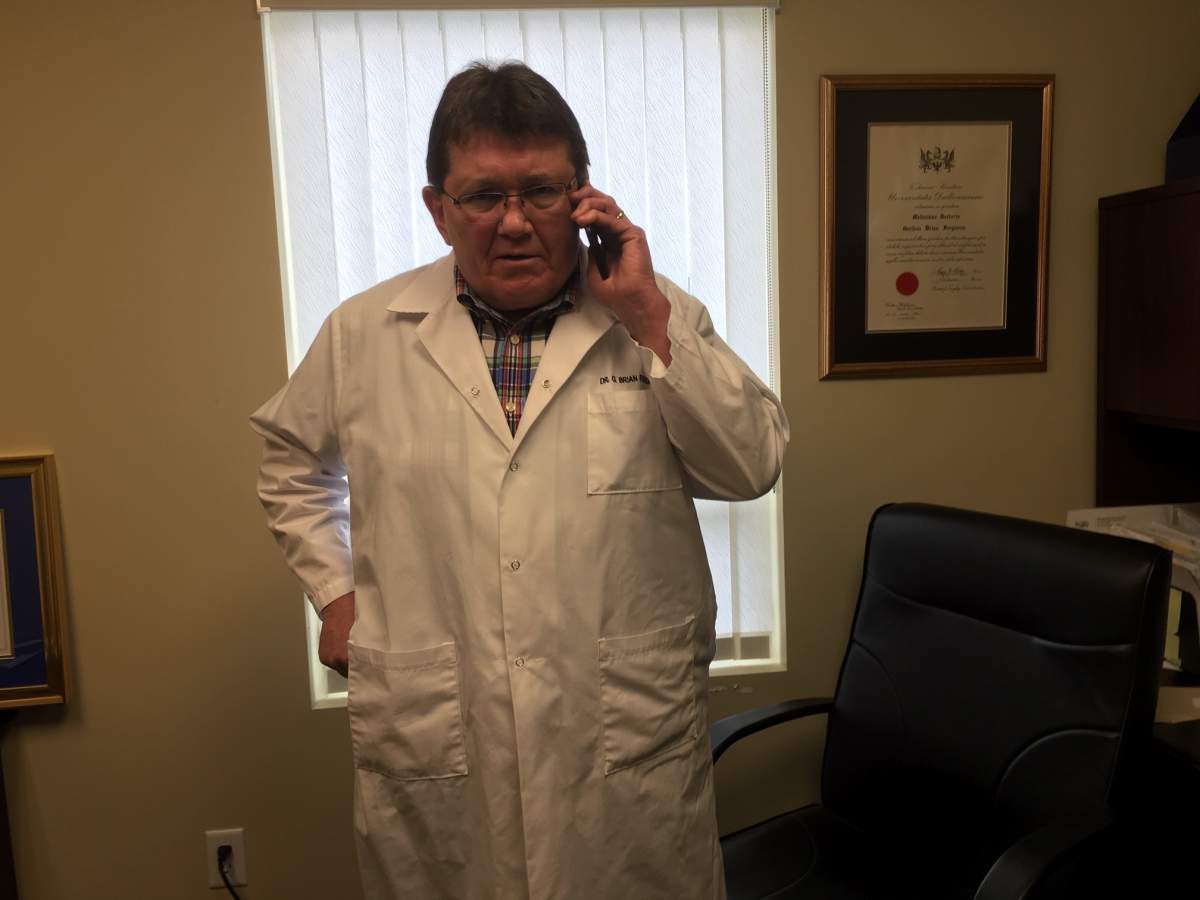In Nova Scotia, emergency department closures are becoming the new normal.

For most of this week, emergency service at All Saints Springhill Hospital in Springhill, N.S., is shut down during daytime hours. Hospital authorities blame a chronic shortage of doctors.
For resident Mary Jane Gabriel, the thought of travelling an extra 15 to 20 minutes for emergency care at the next-nearest hospital in Amherst is disturbing.
“Sometimes, if you can’t get into Amherst, then you go to Sackville, N.B. Somebody could be really sick and lose their life in the meantime,” she said.
For Robert McLellan, it means greater risk if his diabetes flares up.
“It needs a lot of care because you can go into a coma just like that,” he said. “And you might not know yourself and people that you’re with might not know so all you got to do is call 911 and hope for the best.”

But the best is getting worse.

Get weekly health news
Daily announcements of emergency department closures have become routine on local radio stations in Nova Scotia. Every part of the province is feeling the effects, as outlined in a chart from the Nova Scotia Health Authority (NSHA) that was provided to Global News.
Health-care advocates say gaps in emergency service undermine the principle of universal access.
Dr. Tim Holland, former president of Doctors Nova Scotia, says the problem goes far beyond the Atlantic region, which is first to feel the impact of Canada’s aging population.
“I think it’s critical that the rest of the country look at Nova Scotia, look at the Atlantic provinces and see the problems we’re facing in order to better prepare for the problems that we’re facing,” Holland said.
“Everyone should take note. We are a small part of Canada, but this is the canary in the coal mine.”
A spokesperson for the NSHA suggests emergency departments have become de facto primary care centres for people who have no family doctor.
“Everything that doesn’t get cared for elsewhere ends up in the emergency department,” said Dr. Chris Milburn, who co-ordinates emergency coverage in Antigonish and Cape Breton.
Milburn admits there was “a lull” in recruiting doctors following the 2015 amalgamation of nine health boards into the NSHA.
He says the worst is now over because Nova Scotia has since recruited more doctors and is spending emergency care dollars more wisely.
But recruiting efforts still face obstacles from within physician ranks. Dr. Brian Ferguson closed his family practice in Amherst this summer because of his own health problems, reluctantly leaving 3,000 patients to look for another doctor.
Ferguson says he advises potential recruits to practise elsewhere, noting that Nova Scotia doctors are paid less than in other provinces and are taxed at a higher rate.
“Ethically, shouldn’t I send them to Alberta, Ontario or B.C.? And I’ve done that. I’ve actually sat down and talked to them and said: ‘Here’s where you should be. Nova Scotia is not a future for you,'” he said.
Ferguson still works between 50 and 60 hours a week at emergency departments in the Amherst-Springhill area. For many years, he also practised obstetrics.
When he finally walks away from medicine, he estimates it will take three doctors to replace him because fewer of his young colleagues are willing to deliver several forms of medicine at once.
“Most doctors are piecemealing health care now: ‘I’d rather do this or do that and leave it at that and just say I’ll just do emerg or just do hospitals or just do office,’” he said.
Doctors Nova Scotia hopes an upcoming round of contract negotiations with the NSHA will produce improved conditions for attracting and retaining doctors within the province.











Comments